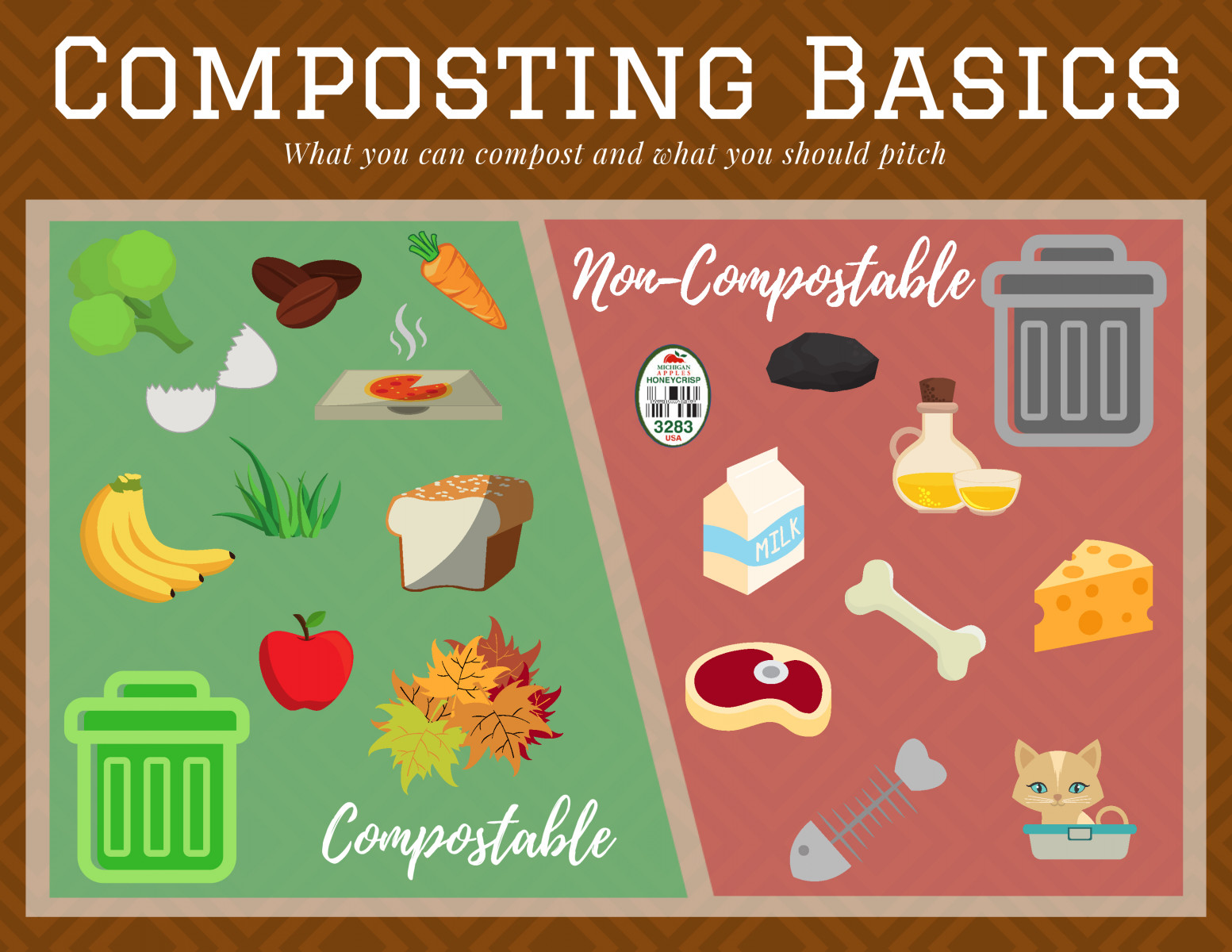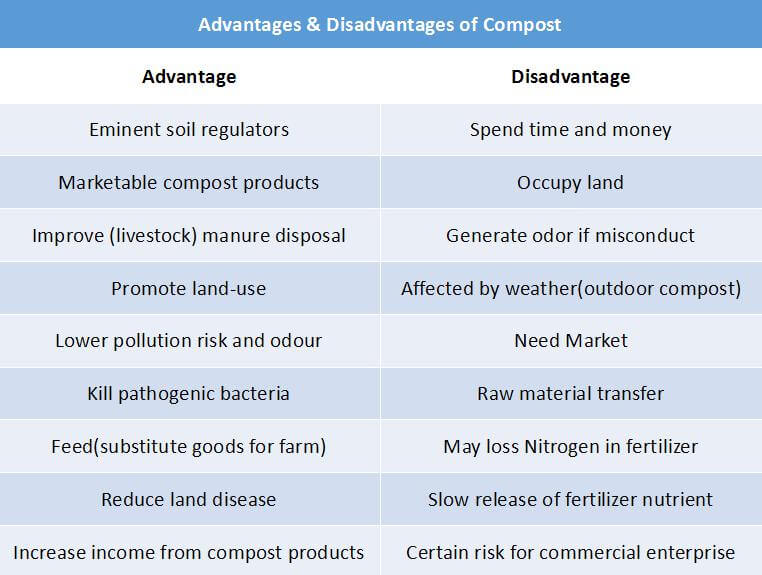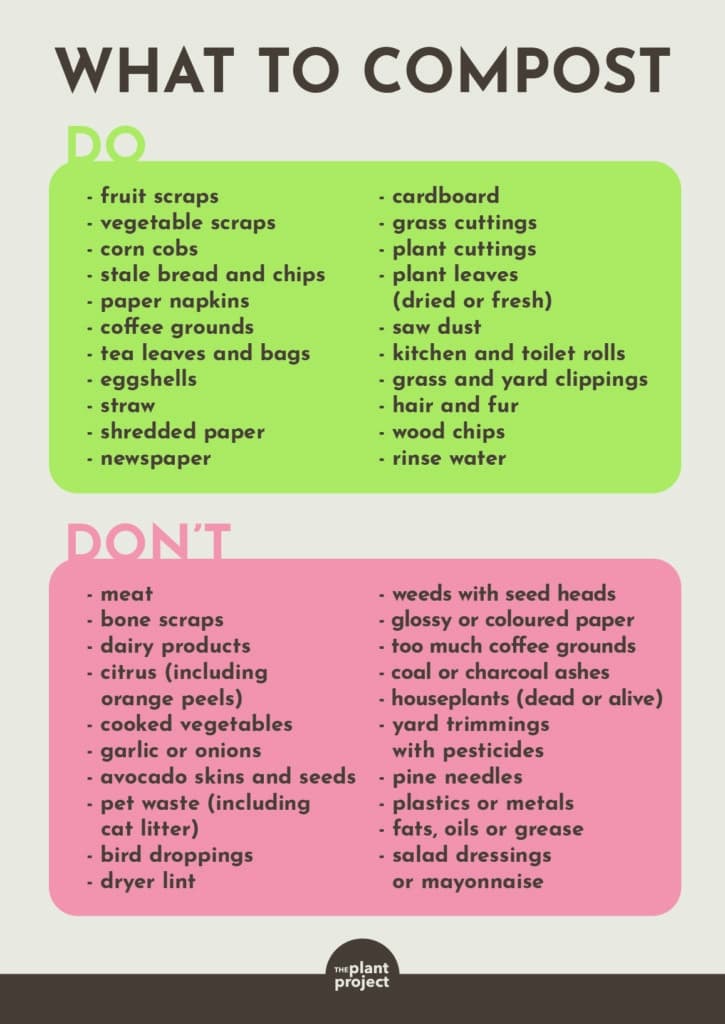What are two mistakes that we should avoid when we prepare compost? Essential Tips for Successful Composting

Composting is an eco-friendly practice that transforms organic waste into nutrient-rich soil, benefiting both gardens and the planet. However, novice composters often make critical mistakes that can hinder the composting process and lead to undesirable results. By understanding what these common pitfalls are, you can enhance your composting efforts and reap the full benefits of this sustainable practice. This article will explore two significant mistakes to avoid when preparing compost, offering essential tips for ensuring a successful and efficient composting experience. Let's delve into these common errors and understand how to create the perfect compost pile.
Avoiding Common Mistakes in Compost Preparation
One of the most critical mistakes to avoid when preparing compost is not balancing the carbon and nitrogen ratios. A proper compost pile requires a mix of greens, or nitrogen-rich materials, such as food scraps and grass clippings, and browns, or carbon-rich items like dried leaves and cardboard. Another frequent mistake is neglecting aeration; compost needs to be turned regularly to allow oxygen to circulate, facilitating the breakdown of organic matter and preventing foul odors. Ensuring both proper ratios and adequate aeration can lead to a successful composting process.
The Importance of Carbon to Nitrogen Ratio
Maintaining the correct carbon to nitrogen ratio (C:N ratio) is essential for effective composting. An ideal ratio is typically around 30:1 (carbon to nitrogen). If the compost pile contains too much carbon, it will decompose slowly and might take a long time to break down. Conversely, if there is too much nitrogen, it can produce a foul smell and may result in a slimy texture in the compost. Properly balancing these materials accelerates the decomposition process and leads to rich, nutrient-dense compost.
The Role of Aeration in Composting
Aeration is crucial for the composting process because it helps introduce oxygen into the pile. Without sufficient airflow, anaerobic conditions may develop, leading to unpleasant odors and slower decomposition rates. Regularly turning the compost pile or using a pitchfork to mix materials can enhance aeration, promoting healthy microbial activity. This activity is necessary for breaking down organic matter efficiently, resulting in high-quality compost.
Avoiding Excessive Moisture
Too much moisture in a compost pile can result in waterlogged conditions, which can hinder microbial activity and produce bad odors. It is important to monitor the moisture levels and maintain a balance where the compost is moist but not soggy. Generally, the compost should be about as damp as a wrung-out sponge. If the pile becomes too wet, adding dry materials like leaves or shredded paper can help soak up excess moisture.
Choosing the Right Materials for Composting
Not all organic materials are suitable for composting. For example, items such as cooked foods, dairy products, or oils can attract pests and create odors. It’s important to include appropriate materials like fruit and vegetable scraps, coffee grounds, and yard waste, ensuring they are free from chemicals or contaminants. By selecting the right materials, you’ll promote a healthier composting environment and yield better end products.
Monitoring Temperature and Decomposition
Monitoring the temperature of your compost pile is critical for ensuring that the decomposition process is active. Ideal composting temperatures range between 130°F to 160°F (54°C to 71°C), which facilitates the breakdown of materials and kills off pathogens and weed seeds. Using a compost thermometer can help you track the temperature, ensuring that the pile is maintained in the right range for optimal microbial activity and efficient composting.
| Common Mistakes | Consequences | Solutions |
|---|---|---|
| Incorrect C:N Ratio | Slow decomposition | Maintain balance of greens and browns |
| Insufficient Aeration | Bad odors | Turn pile regularly |
| Excessive Moisture | Waterlogged compost | Add dry materials |
| Unsuitable Materials | Pest attraction | Choose compost-friendly items |
| Lack of Temperature Monitoring | Inadequate decomposition | Use a compost thermometer |
What should be avoided in compost?

Composting is a great way to recycle organic material and enrich soil, but not all items are suitable for composting. Certain materials can introduce pathogens, attract pests, or slow down the composting process. Here are the key items to avoid in your compost pile.
Meat and Dairy Products
Meat and dairy products are prone to causing odors and attracting unwanted pests such as rodents and flies. These materials can also lead to the growth of harmful bacteria in your compost. Therefore, it's best to keep them out entirely to maintain a balanced compost environment.
- Meat scraps (bones, fat)
- Dairy products (cheese, milk, yogurt)
- Fish and seafood
Oils and Fats
Oils and fats can create a greasy layer in your compost, which interferes with the aeration process, essential for effective decomposition. They can also attract pests. Instead, it's advisable to dispose of these materials through other means.
- Cooking oils (olive oil, vegetable oil)
- Animal fats (lard, shortening)
- Butter and margarine
Pet Waste
Including pet waste in your compost can introduce pathogens and parasites that are harmful to humans and plants. Since domestic pet feces may contain germs or chemicals from food, it's crucial to avoid adding this material to your compost.
- Dog feces
- Cat litter (especially if clumping)
- Other pet waste
Weeds and Diseased Plants
Adding weeds or diseased plants can lead to further spread of unwanted plants or diseases in your garden. The high temperatures necessary for effective composting may not be reached in home compost systems, leading to potential propagation of these issues.
See also:
- Weed seeds
- Diseased plants or parts
- Any invasive species
Certain Processed Foods
Processed foods often contain preservatives and additives that can disrupt the natural composting process. These chemicals might affect the quality of the finished compost and the health of your garden plants.
- Junk food (chips, candy)
- Processed grains (bread, pasta)
- Packaged snacks
What are two negatives of composting?

Composting, while often praised for its environmental benefits, does come with its drawbacks. Here are two significant negatives of composting:
1. Odor Problems:
Composting organic materials can sometimes lead to unpleasant odors, especially if the compost pile is not managed correctly. The decomposition process can produce strong smells that are unappealing and can attract pests.
2. Time-Consuming Process:
Composting requires time and patience. The decomposition of organic matter takes weeks to months, depending on various factors. Homeowners might find it inconvenient to wait for their compost to mature, making it a less appealing option for those looking for quick gardening solutions.
Odor Problems in Composting
One of the primary issues with composting is the potential for unpleasant odors. If compost piles are not aerated or maintained properly, they can develop a foul smell due to anaerobic decomposition. This can deter people from composting altogether, especially in urban environments.
- Improper balancing of materials can lead to bad smells.
- High moisture levels in the pile can create a swamp-like environment.
- Odors can attract unwanted wildlife, leading to further issues.
Time Consumption in Composting
Another notable drawback of composting is the time required for the process to be effective. Depending on the materials used and the method of composting, it can take several weeks to months before the compost is ready.
- Active composting can sometimes take over three months to produce usable compost.
- Frequent monitoring and turning of the pile are necessary, which require time and effort.
- Inconsistent results can frustrate novice composter enthusiasts.
Space Requirements for Composting
Composting systems often require a significant amount of space, which can be a negative for those with limited outdoor areas. Not all homes have the capacity to accommodate a full composting setup.
- Traditional compost bins can take up considerable yard space.
- Indoor composting systems may also require designated areas that can be inconvenient.
- Space limitations can restrict the amount of waste that can be composted.
Pest Attraction
Improperly managed compost piles can attract pests such as rodents, insects, and other animals looking for food sources. This can pose health and sanitation issues, particularly in urban or suburban areas.
- Food scraps used in compost can attract unwanted animals.
- Covering compost piles may help, but it is often not a complete solution.
- If pests are not controlled, they can become a nuisance for homeowners.
Quality Control Issues
The quality of compost produced can vary greatly, which is another downside. Inconsistent results can lead to uncertainty regarding the compost’s effectiveness in gardening and landscaping.
- Improper ratios of green and brown materials can affect the nutrient profile.
- Contaminated materials in compost can lead to poor-quality results.
- Home composters may struggle to replicate successful batches consistently.
What is not recommended to make compost?
:max_bytes(150000):strip_icc()/thingstonevercompost-e693cac2fe544c6b8a50489412d18205.png)
Composting is an excellent way to recycle organic waste and create nutrient-rich soil, but not all materials are suitable for this process. Using inappropriate items can lead to poor compost quality, odors, and potential harm to plants and humans. Here are some items that are not recommended for composting:
1. Meat and Fish Products
Meat, fish, and their byproducts, such as bones and seafood shells, should generally be avoided in compost piles. These materials can attract pests like rodents and insects, leading to infestations. Additionally, they can produce unpleasant odors during decomposition, making the composting process less effective and more challenging to manage.
See also:
- Attract pests and scavengers.
- Cause unpleasant smells.
- Introduce pathogens and diseases.
2. Dairy Products
Dairy products, such as milk, cheese, butter, and yogurt, are also not suitable for composting. Similar to meat, they can attract animals and create odors while decomposing. Moreover, they do not break down easily and can lead to a lumpy compost pile.
- Unpleasant odors can develop.
- Encourages unwanted wildlife.
- Poor breakdown and integration with other materials.
3. Oily or Greasy Foods
Foods that are oily or greasy, like fried foods and salad dressings, should be excluded from compost piles. These materials can disrupt the balance of carbon and nitrogen in the compost, hinder microbial activity, and contribute to foul smells.
- Imbalance in compost chemistry.
- Can produce rancid odors.
- Discourages healthy microbial activity.
4. Processed Foods
Processed foods, which include anything that contains preservatives, refined sugars, or chemical additives, are not good candidates for composting. They can introduce toxins into the compost and may not break down adequately, leading to contamination.
- May contain harmful chemicals.
- Can disrupt compost quality.
- Slow decomposition rates.
5. Diseased Plants and Weeds
Including diseased plants and weeds in your compost can be detrimental. Such materials can harbor pathogens that may survive the composting process, potentially spreading disease to healthy plants once the compost is used. Additionally, many weeds can regain viability, leading to weed problems in your garden.
- Risk of spreading diseases.
- Weeds may thrive in the compost.
- Potential contamination of healthy soil.
Do and don'ts for compost?

What to Do When Composting
When it comes to composting, there are several essential practices you should follow to ensure a successful compost pile. Adopting these practices will lead to rich, healthy compost for your garden. Here are some key points to keep in mind:
- Balance Green and Brown Materials: Incorporate a mix of nitrogen-rich (green) materials, such as grass clippings and kitchen scraps, and carbon-rich (brown) materials, like dried leaves and cardboard.
- Aerate the Pile: Regularly turn your compost pile to introduce oxygen, which is crucial for the decomposition process. Aim to aerate every few weeks.
- Maintain Moisture: Ensure your compost is kept moist, similar to a damp sponge, but not overly wet. If it’s too dry, decomposition will slow down.
What Not to Do When Composting
While there are many best practices for composting, there are also significant mistakes that can hinder the process. Avoiding these common pitfalls will help you produce better compost:
- Don't Add Meat or Dairy: These items can attract pests and create odors, making your compost pile less effective.
- Avoid Weeds with Seeds: Composting weed seeds can lead to them sprouting in your garden later. Ensure all plant materials are free of seeds.
- Never Use Chemical-Laden Materials: Avoid including materials treated with pesticides or chemicals, as they can harm the microbial life in your compost.
Benefits of Composting
Composting comes with numerous ecological and agricultural benefits that contribute to sustainability and better gardening practices. By understanding these advantages, you can appreciate the importance of composting:
- Reduces Waste: Composting diverts organic waste from landfills, which reduces greenhouse gas emissions and landfill overflow.
- Enriches Soil: The nutrients in compost improve soil structure, enhance moisture retention, and promote healthy plant growth.
- Saves Money: Compost can replace chemical fertilizers, leading to savings for gardeners and reducing environmental impacts.
Common Composting Methods
There are several effective methods to compost, each with its advantages and suitable applications. Familiarizing yourself with these methods helps you choose the best one for your needs:
- Hot Composting: This method involves creating a high-temperature compost pile by layering materials effectively, producing compost quickly in a few weeks.
- Cold Composting: A slower method that requires less effort, this involves simply piling organic materials and letting them decompose gradually over months to years.
- Bokashi Composting: This is an anaerobic fermentation process that utilizes a special mix of microbes. It’s great for kitchen scraps, including meat and dairy.
Signs Your Compost is Ready
Recognizing when your compost is ready is key to utilizing it effectively in your garden. Knowing these indicators will help ensure you use it at the right time:
- Dark Color: Finished compost should resemble rich, dark soil—indicating that the materials have fully decomposed.
- Earthy Smell: The compost will have a pleasant, earthy aroma rather than any foul odor, which indicates proper decomposition.
- Heat and Texture: Finished compost will no longer generate heat, and its texture should be crumbly with no visible large pieces of unprocessed materials.
Questions from Our Readers
What is one common mistake to avoid when preparing compost?
When preparing compost, one common mistake is not maintaining the right balance between green materials (like food scraps) and brown materials (like dried leaves). Achieving this balance is crucial for the composting process to work effectively, as too much of one type can lead to odors and slow decomposition.
How can excessive moisture affect my compost?
Excessive moisture in compost can lead to anaerobic conditions, which means that the compost pile does not get enough oxygen. This can result in a foul odor and slow down the decomposition process significantly. It's important to monitor the moisture level and ensure it is similar to a sponge that is damp, but not dripping wet.
Why is it important not to include certain materials in compost?
Including pets' waste, meat, or dairy products in your compost is a mistake because these materials can attract pests and create unpleasant odors. Additionally, they may harbor pathogens, making the compost unsafe for garden use. Sticking to safe materials ensures a healthy compost that is beneficial for plants.
See also:
What happens if I don't turn my compost regularly?
Failing to turn your compost regularly can result in an uneven decomposition process. Certain materials may compact and create anaerobic zones, leading to a slower breakdown and potential odor issues. Regularly turning your compost helps to incorporate oxygen and promotes a more efficient composting process.
https://youtube.com/watch?v=q7gB4DgXZqw
If you want to read more articles like What are two mistakes that we should avoid when we prepare compost? Essential Tips for Successful Composting, we recommend you check out our Compost category.
Leave a Reply
Related Articles